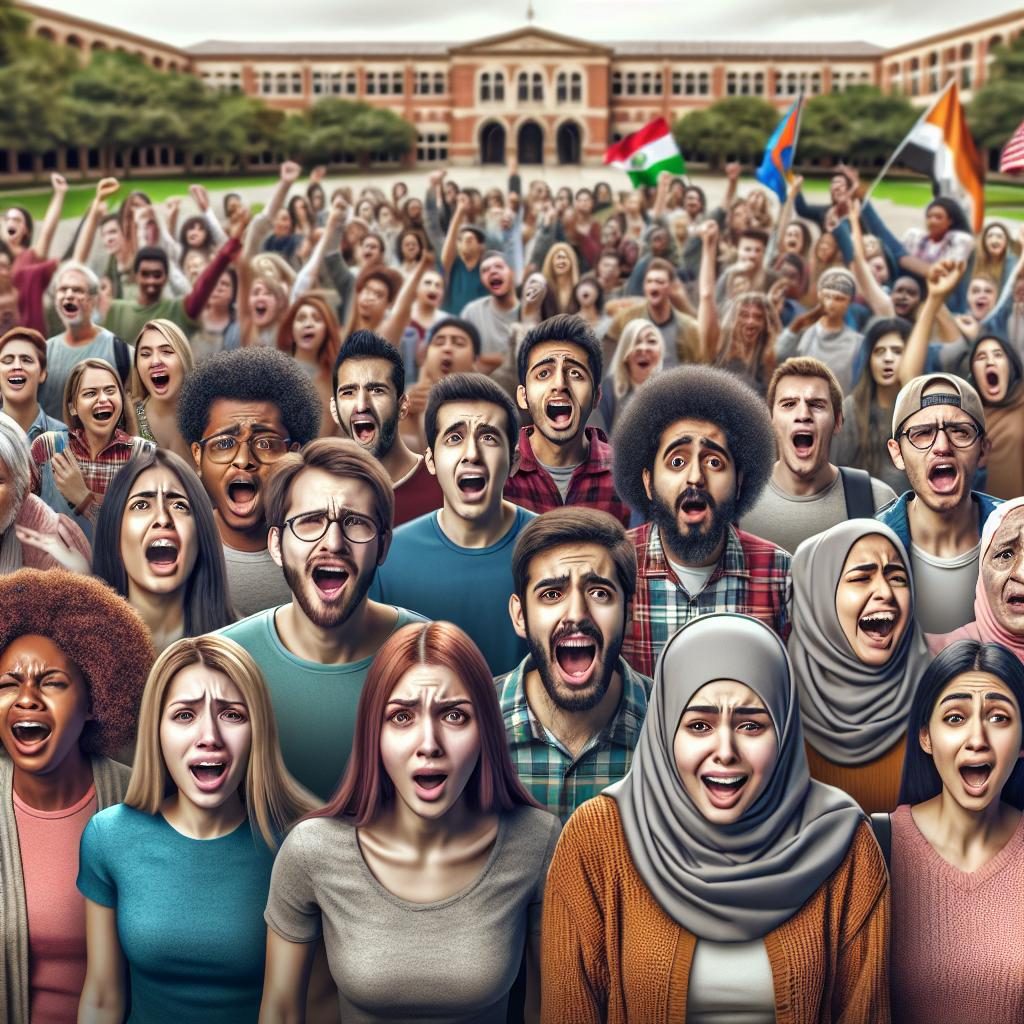Columbia Students Divided Over Controversial Roast Event
Columbia was buzzing with activity on Wednesday night as the student union at the University of South Carolina, Russell House, became the center of attention—for better or worse. Instead of its usual lively atmosphere filled with students clutching textbooks and Chick-Fil-A bags, the scene felt unusually tense. With metal barricades set up at the entrances and a visible presence of law enforcement officers, the atmosphere was quite a far cry from the usual student hangout. What was behind this unusual ambiance? A “roast” of Vice President Kamala Harris organized by the student group Uncensored America.
A Night of Controversy
The event, featuring two figures known for their far-right rhetoric—Gavin McInnes and Milo Yiannopoulos—had generated considerable criticism since its announcement. Both McInnes and Yiannopoulos have been labeled by various organizations as promoting hate speech, leading to protests and strong disapproval from university leadership and local civic figures. In response to the event, USC quickly arranged an alternative activity nearby, offering students a space for unity and much-needed fun.
As the clock ticked closer to 7 p.m., students began flowing into Russell House. You’d see everything from vibrant campaign gear supporting former President Donald Trump to t-shirts displaying the controversial “Let’s go Brandon” slogan. The atmosphere was like a political carnival. By the time McInnes took the stage at around 8:30 p.m., approximately 180 attendees had filled the ballroom, not counting media and law enforcement personnel.
Mixed Reactions
Throughout the evening, hecklers added an extra layer of unpredictability, yelling everything from insults to applause. Some students left the event mid-way, expressing their discontent with shouts like “get a f—ing life.” Whether or not you agreed with the speakers, you couldn’t deny the energy in the room. McInnes’s routine was filled with profanity-laden jabs at Vice President Harris, questioning her legitimacy and speaking on topics that many found deeply unsettling.
His fellow speaker, Yiannopoulos, mostly focused on disparaging the university faculty and making threats about legal action. The tensions, however, were not just confined to those within the ballroom. Outside, about 20 to 30 demonstrators held signs proclaiming messages like “Make Fascists Afraid” while engaging with students who were just passing through. The dynamic felt like two different worlds were colliding on campus that night.
Alternative Celebration and Student Sentiment
Meanwhile, across campus, the student government and various student organizations hosted a vibrant event dubbed “Blatt Bonanza.” Students enjoyed free food, music from a DJ, inflatable obstacle courses, and other fun activities. It stood in stark contrast to the heated roast happening just blocks away, with a reported 1,500 students attending the alternative festivities. Will Dorrah, president of the Residence Hall Association, emphasized the importance of school unity, stating that the event “set the tone that this university stands for.”
USC student body president, Patton Byars, echoed similar sentiments, affirming that the alternative event was here to serve students and create a community space amidst the divisiveness.
Civic Leaders Weigh In
While some found the roast entertaining, many prominent figures, including former South Carolina Democratic Party chair Trav Robertson, expressed their disappointment. Robertson described the event as “vulgar” and inappropriate. Several local politicians and civic leaders voiced their outrage, citing the potential risks involved in allowing hate speech to flourish on campus.
The backlash was felt not just locally but reached the national level. The NAACP and more than 20 student groups decried the event, asserting that it violated the university’s values aimed at fostering respect for all individuals. They pointed to the Carolinian Creed, which emphasizes the dignity of all persons and discourages bigotry.
Freedom of Speech vs. Public Safety
USC, while acknowledging the ongoing criticisms, maintained that as a public institution, it had a duty to uphold the First Amendment rights of its students. USC President Michael Amiridis and board chair Thad Westbrook stated, “Censoring even the most hateful individuals and groups does not solve the problems we face.” They emphasized the importance of open dialogue, even when uncomfortable.
As the event concluded without any violence, it left many in Columbia reflecting on what this means for the future of discourse on campus. Whether you were attending the roast or at Blatt Bonanza, one thing was clear: the university community continues to grapple with the complexities of free speech, civic responsibility, and the need for safe spaces for all.







